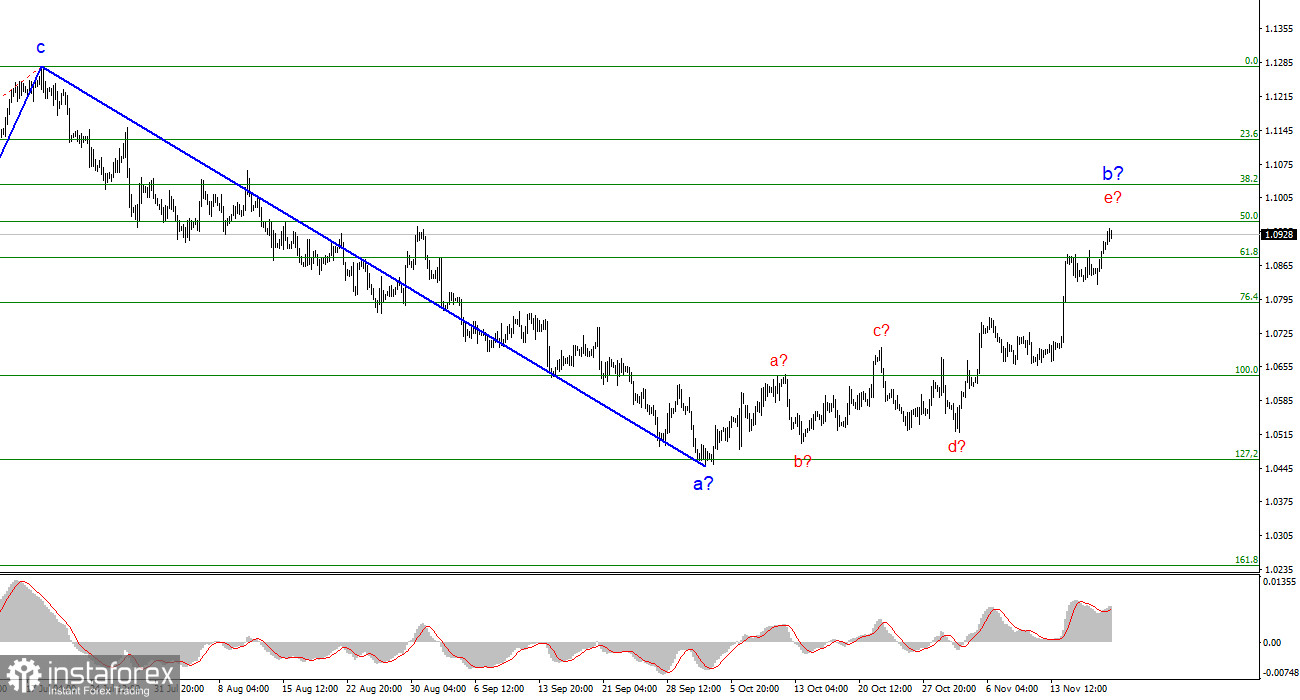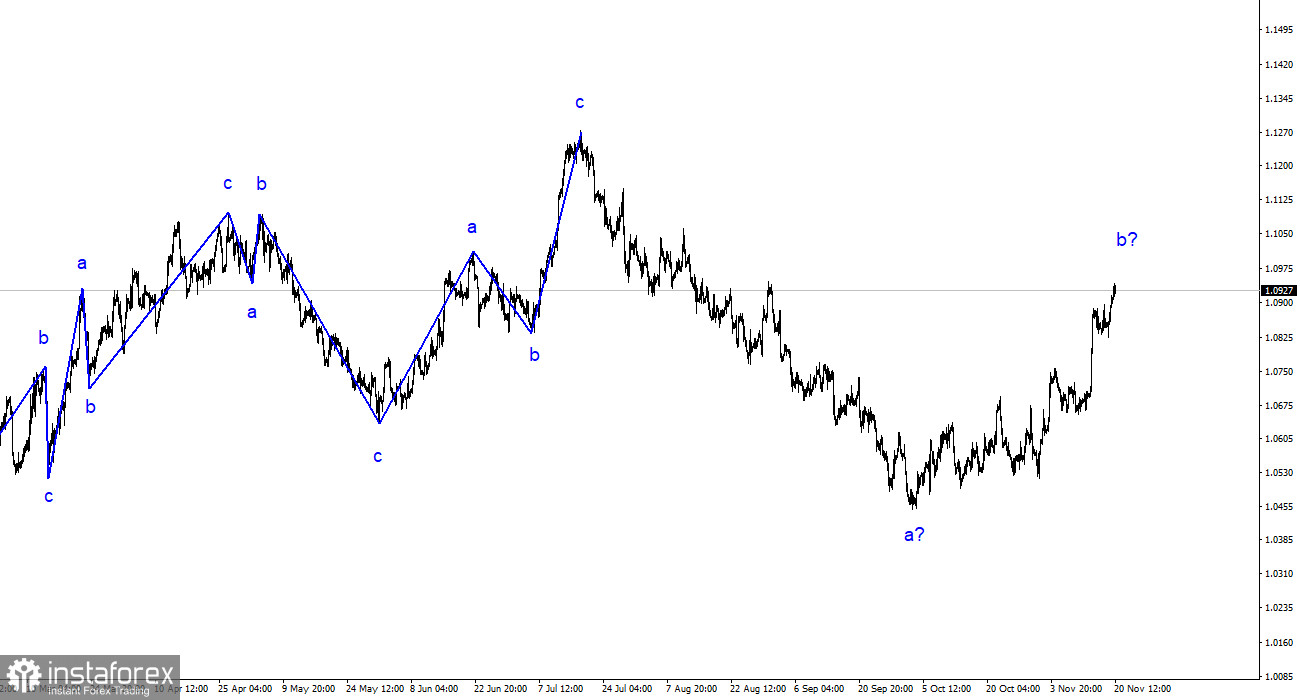
The wave analysis of the 4-hour chart for the euro/dollar pair remains quite clear. Over the past year, we have seen only three wave structures that constantly alternate with each other. Throughout 2023, I have regularly mentioned that I expect the pair to be near the 5th figure, where the construction of the last upward three-wave structure began. This target was reached after the decline in July–October. After reaching this target, corrective wave 2 or b construction began, taking a clear five-wave form. However, the US inflation report led to this wave becoming even more complex. Nevertheless, the working scenario remains the same – wave 3 or c construction.
Regardless of how complex wave 2 or b may eventually become (I warned that it could be much more complicated), the overall decline of the European currency will not be completed, as in any case, the construction of the third wave of the downward trend is required. Now, wave e in 2 or b will take a five-wave form, after which the quote rise will be completed.
The news background needs to be stronger, which does not deter investors.
The euro/dollar pair rate increased slightly on Monday. Therefore, the construction of the presumed wave e in b continues. However, if the current wave analysis is correct, this wave's construction will be completed soon. It has already taken on a complex and prolonged form. Unfortunately, the American news background continues to pressure the dollar, causing the current wave to become increasingly complex. There are no market factors that can continue to push the pair up, but it is worth remembering that wave structures can be different, so theoretically, wave b may be 100% of wave a. In my reviews, I try to consider the most likely options for wave analysis, which can be traded easily, but sometimes we see structures that are very difficult to trade. And forecasting them is even more challenging.
Today, only one producer price index was released in Germany. According to this report, prices slowed down by 0.1% in October every month and by 11% annually. Inflation continues to fall, which is hardly a positive factor for the euro. However, the Federal Reserve and the European Central Bank are already talking not about raising rates but about preparing to lower them next year. Whichever bank starts and lowers its rate faster and stronger, that currency may face problems.

General conclusions.
Based on the analysis, the construction of a downward set of waves continues. The targets around the 1.0463 mark have been perfectly worked out, and the unsuccessful attempt to break through this mark indicated a transition to the construction of a corrective wave. Wave 2 or b has taken a completed form, so in the near future, I expect the construction of an impulsive downward wave 3 or c with a significant decline in the pair. I still recommend selling with targets below the low of wave 1 or a. While wave 2 or b takes a more prolonged form, sales should be cautious, or even better, wait for signals of the wave's completion.
On a larger wave scale, the upward segment of the trend has taken a prolonged form but is likely completed. We saw five waves up, which most likely form the structure of a-b-c-d-e. Next, the pair built four three-wave structures: two down and two up. Now, it has transitioned to building another prolonged downward three-wave structure.
 English
English 
 Русский
Русский Bahasa Indonesia
Bahasa Indonesia Bahasa Malay
Bahasa Malay ไทย
ไทย Español
Español Deutsch
Deutsch Български
Български Français
Français Tiếng Việt
Tiếng Việt 中文
中文 বাংলা
বাংলা हिन्दी
हिन्दी Čeština
Čeština Українська
Українська Română
Română

